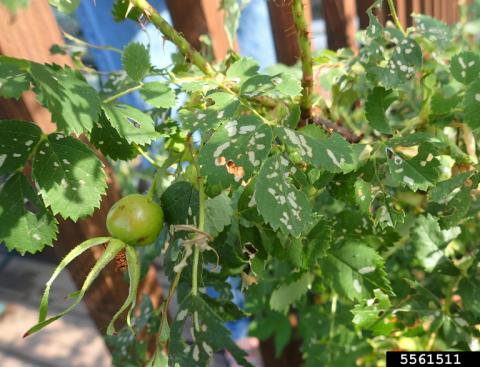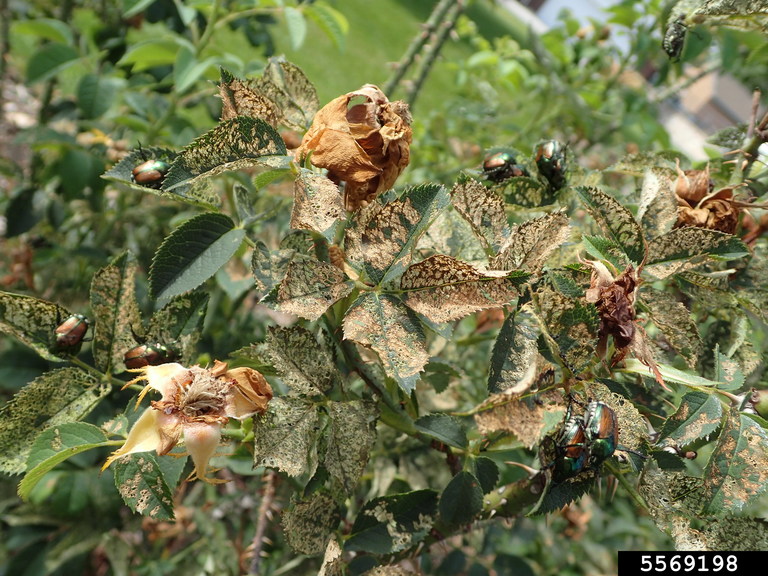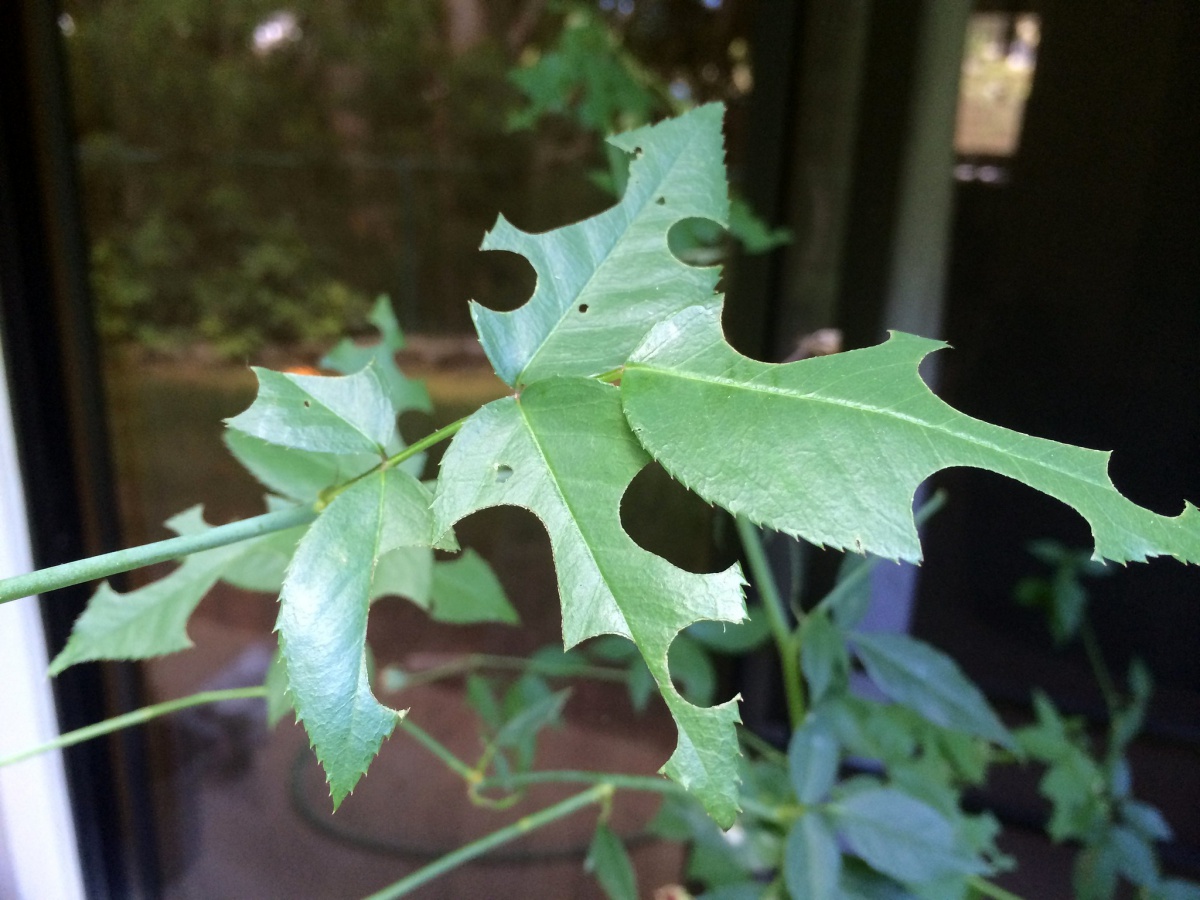What’s eating the leaves of my roses?

Roses have a reputation for being tricky to grow. Not only do they require specific growing conditions, pruning, and winter protection, but they are also plagued by a long list of insect and disease pests. Although some of the most serious disease problems can be avoided by planting resistant varieties, such as those in the Knock-Out or Easy Elegance series, insect pests aren’t so easily eluded. Keeping roses free of feeding damage involves close observation, careful monitoring, and a basic understanding of the most important and common insect pests.
Roseslug

May and June is the time to watch out for a pest called roseslug. Roseslugs are a type of sawfly larva which feed gregariously on rose foliage, eating the tissue between veins and giving leaves a window-pane-like appearance. This transparent layer of tissue eventually turns brown. As the larva continue to develop, they are capable of chewing larger holes in leaves, eating everything but the mid-rib. Roseslugs themselves are smooth with yellowish-brown heads and translucent yellowish-green bodies. They are most often found on the undersides of foliage, which is where you should look when scouting.
Since roseslugs can cause significant aesthetic damage and have the potential to reduce plant vigor if left unchecked, monitoring for them in the spring is essential. Small numbers of roseslugs can be hand-picked from leaves and either squished or drowned in a bucket of soapy water. Heavier infestations may warrant the application of a registered insecticide such as insecticidal soap or spinosad.
Japanese beetle

If damage to rose foliage doesn’t start until the end of June or beginning of July, adult Japanese beetles are probably the cause. Japanese beetles will feed on both rose flowers and foliage, consuming petals and skeletonizing leaves, making them appear lace-like. If it weren’t for their destructive behavior, Japanese beetles could easily be considered beautiful. They are easily recognized by their metallic green bodies and shiny, bronze wing covers.
In the home garden, one of the best control methods for Japanese beetles is handpicking. It is usually easier to handpick beetles in the morning and evening when the insects are less active. When handpicking, look to see if there are any white spots on the beetle’s backs. These are the eggs of a beneficial Tachinid fly whose larva will bore into the beetle and eventually kill it. Although there are a number of pesticides registered to control this pest, their effectiveness is often limited. Repeated spraying is often necessary, and many of the most effective options are highly toxic to bees and should not be applied to flowering plants.
Leafcutter bee

When precise ovals or circles are cut from rose foliage, leafcutter bees may be active in the garden. Leaf cutter bees are native species that are largely beneficial, only causing minor damage to roses. They are solitary bees, which means they do not form colonies. Females make their nests in hollow twigs, rotting wood, or other existing holes like those in bee nest boxes. Once the female has excavated a tunnel that is several inches deep, she will begin cutting pieces of leaves to create individual nest cells for each of her eggs.
Leafcutter bees are important pollinators of many crop plants as well as native wildflowers, so no chemical controls should be used. Instead, appreciate that you’ve created the right habitat for a native pollinator to thrive.
Got questions? The Ask UNH Extension Infoline offers practical help finding answers for your home, yard, and garden questions. Call toll free at 1-877-398-4769, Monday to Friday, 9 a.m. to 2 p.m., or e-mail us at answers@unh.edu.
Related Resource(s)
Do you love learning about stuff like this?
SUBSCRIBE TO Granite State Gardening newsletter
Got questions? The UNH Extension Yard and Garden Infoline offers practical help finding answers for your yard and garden questions.
Call toll free at 1-877-398-4769, Monday to Friday, 9 a.m. to 2 p.m., or fill out webform.
